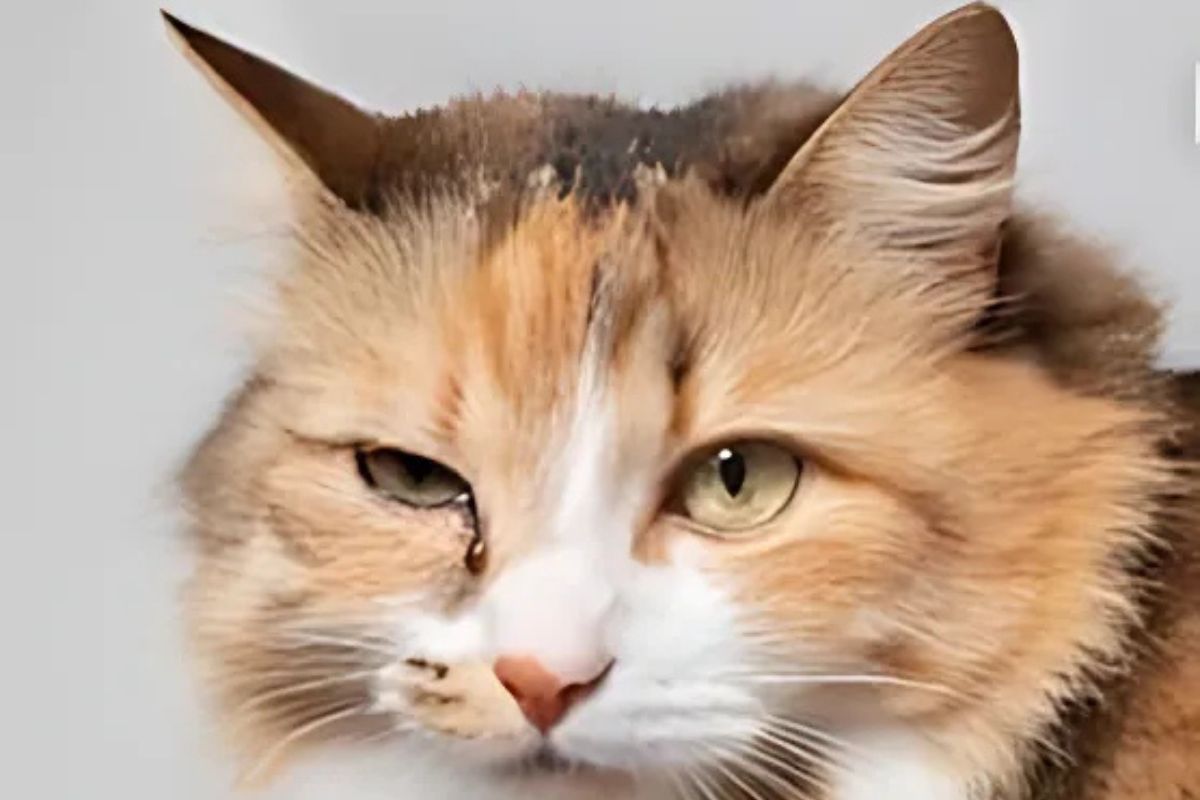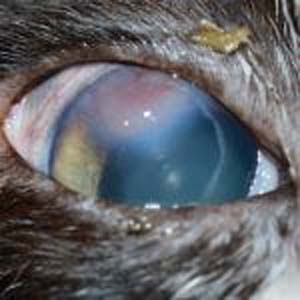Pet Herpetic Keratoconjunctivitis in Spring, TX
Our comprehensive diagnostics and treatment at North Houston Veterinary Ophthalmology ensure your pet receives expert care for Herpetic Keratoconjunctivitis in Spring, TX.

Pet Herpetic Keratoconjunctivitis
Understanding Pet Herpetic Keratoconjunctivitis
Pet Herpetic Keratoconjunctivitis is a common eye condition in cats caused by the Feline Herpes Virus-1 (FHV-1). This lifelong disease affects the conjunctiva and cornea, leading to intermittent inflammation that can impact one or both eyes. At North Houston Veterinary Ophthalmology, we specialize in diagnosing and managing this condition to ensure your pet’s comfort and eye health.

Clinical Signs of Pet Herpetic Keratoconjunctivitis
Recognizing the symptoms of Pet Herpetic Keratoconjunctivitis is crucial for early intervention. Common signs include:
- Squinting or closing of the affected eye
- Increased tearing or discharge
- Red and swollen conjunctiva
- Third eyelid elevation
In the early stages, conjunctivitis might persist without treatment. As the condition progresses, corneal ulceration and blood vessel growth on the cornea can occur, causing significant discomfort for your pet.
Diagnosing Herpetic Keratoconjunctivitis
As part of our comprehensive lineup of veterinary eye care, North Houston Veterinary Ophthalmology offers comprehensive diagnostic services to help identify Herpetic Keratoconjunctivitis. One related condition we often diagnose is Eosinophilic Keratitis, which presents as pink or tan plaques on the corneal surface. This condition, also associated with FHV-1, can cause pain and corneal ulcerations over time. This condition is typically identified through corneal cytology which involves carefully collecting cells from the corneal surface which is a routine procedure performed by ophthalmic specialists.
Causes of Pet Herpetic Keratoconjunctivitis
Feline Herpes Virus-1 is the primary cause of Herpetic Keratoconjunctivitis. Over 50% of the feline population harbors FHV-1 in the cornea. While there is no cure for FHV-1, managing flare-ups with supportive care and antiviral therapy is essential. Flare-ups can occur spontaneously or be triggered by stress.
Treatment Options
Managing Pet Herpetic Keratoconjunctivitis requires a multifaceted approach. While FHV-1 can be self-limiting, persistent symptoms necessitate antiviral therapy. If corneal ulcers develop, antibiotic therapy may be necessary to prevent secondary infections. Our treatment plans are tailored to each pet’s specific needs, ensuring the best possible outcomes.
Key Services Offered:
- Comprehensive Eye Exams: Detailed assessments to identify and evaluate eye conditions.
- Antiviral Therapy: Targeted treatments to manage FHV-1 and reduce flare-ups.
- Corneal Cytology: Diagnostic testing to confirm conditions like Eosinophilic Keratitis.
- Supportive Care: Ongoing management to maintain eye health and prevent complications.
- Stress Management Advice: Guidance on reducing stress to minimize flare-up triggers.
- Diagnostic Testing: Swabs to collect samples from the ocular surface and throat can be obtained to test for FHV-1 and other common airway pathogens found in cats that can cause ocular and upper respiratory illnesses.
Why Choose North Houston Veterinary Ophthalmology?
Choosing the right veterinary ophthalmologist is crucial for managing Pet Herpetic Keratoconjunctivitis. At North Houston Veterinary Ophthalmology, we combine expertise with compassionate care to provide the best treatment for your pet. Our team is dedicated to staying abreast of the latest developments in veterinary ophthalmology, ensuring your pet receives the highest standard of care.
Contact Us
If you suspect your pet may be suffering from Herpetic Keratoconjunctivitis, don’t hesitate to reach out to North Houston Veterinary Ophthalmology. Our team is here to provide the specialized care your pet needs. Contact us today to schedule an appointment and ensure your pet’s eyes remain healthy and comfortable.